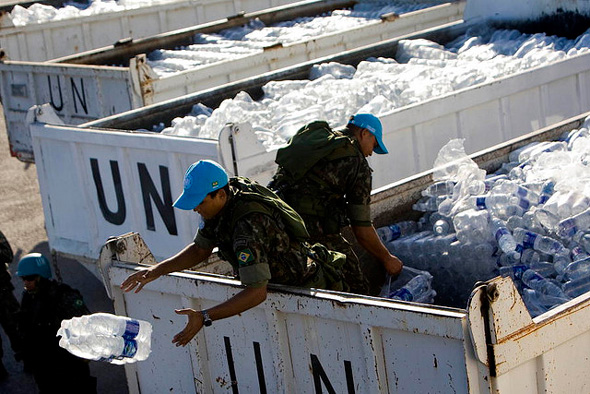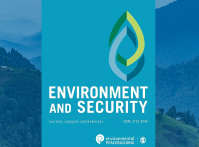-
First Impressions: Four Takeaways from the Global Water Security Intelligence Assessment
March 27, 2012 By Geoffrey D. Dabelko
The just-released unclassified National Intelligence Council report on water and security is a very positive contribution to understanding very complex and interconnected ecological, social, economic, and political issues.
The report was issued by the National Intelligence Council (NIC). But behind the assessment are many months of extensive consultations across government and with outside scholars and practitioners from myriad sectors. At the end of the day, and by definition, the authors adopt a U.S. security perspective. But the assessment’s utility should extend far beyond the security sector given the trends it identifies and the analysis it advances. Indeed, Secretary Hillary Clinton, who requested the assessment, launched it during her World Water Day speech last week.
NSB’s editor Schuyler Null hit on the report highlights earlier this week, but here are a few broader takeaways from the report that will quickly become a common point of reference in the water and security community:
Water cannot be viewed in isolation from other key issues such as energy and food. The report highlights the need to see these key issues as interconnected and intertwined and these connections can help explain how water and security linkages have key manifestations in other sectors. This finding implies that single sector approaches present potential shortcomings with very real security implications. In these ways, human security concerns constitute priorities for traditional security institutions in ways that cannot be dismissed as lower priorities.
Water security impacts national security. While conflict and traditional concerns of the security community are an expected feature of the report, the assessment also makes clear that trends in water and sanitation, or water and food, or water and energy, constitute fundamental challenges that rise to the level of security concerns as well. The presence of organized violence is not a necessary to constitute critical concerns for the stability and human security conditions of a group, community, country or region.
In essence, the intelligence community recognizes that it doesn’t need to “bleed to lead.” There are a number of security concerns that are not connected explicitly to organized violence.
The future may not look like the past regarding water and conflict between states. Scholarship by Aaron Wolf and colleagues has provided an evidence-based antidote to the appealing “water wars” frame that so dominates newspaper headlines and political speeches. The NIC assessment recognizes this research by affirming that states have not fought over water and in fact cooperation has occurred in many contexts even in the face of shared and at times scarce resources. Yet the assessment says the future may not look like the past beyond 10 years hence, when increased demand will test the institutional arrangements we have for sharing water and resolving water disputes.
The policy conclusion that the NIC cannot recommend (by law) but should be drawn by policymakers: invest much more energy and resources in the development of transboundary water institutions and dispute resolution mechanisms now rather than in 10 years.
Governments can occasionally look long-term. The U.S. government and its security institutions are at times able to carve out enough time to look seriously at long-term challenges. Such examples are few and far between. But the NIC’s other well-known product, the Global Trends report, looking a couple decades ahead every four years to coincide with new presidential administrations, is another notable exception.
The true challenge now becomes whether public and private sector actors across the development, diplomacy, and defense arenas will proactively act on these insights. The intelligence community cannot, it should be remembered, make policy recommendations. Their products are diagnostic and analytical, not policy prescriptive. It is up to the “consumers” of this intelligence assessment to act.
Photo Credit: “UN Peacekeepers Distribute Water and Food in Haiti,” courtesy of United Nations Photo.
 A Publication of the Stimson Center.
A Publication of the Stimson Center.







